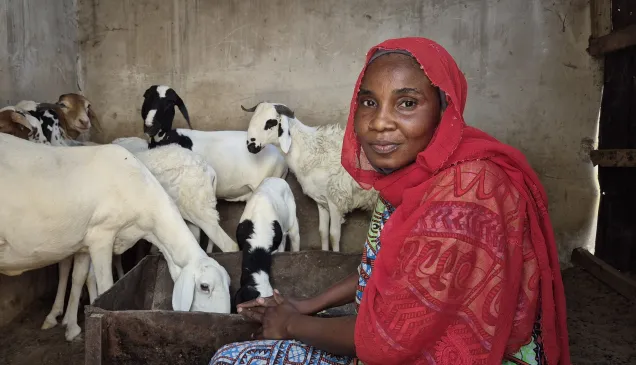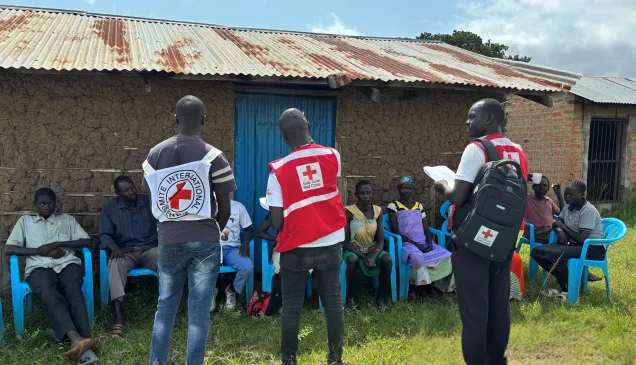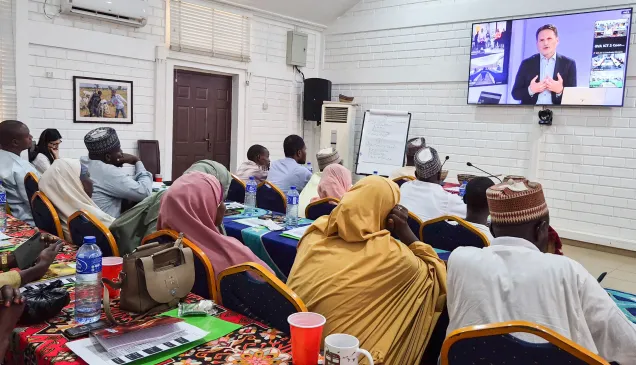Nigeria: Involving men in sexual and reproductive health programmes
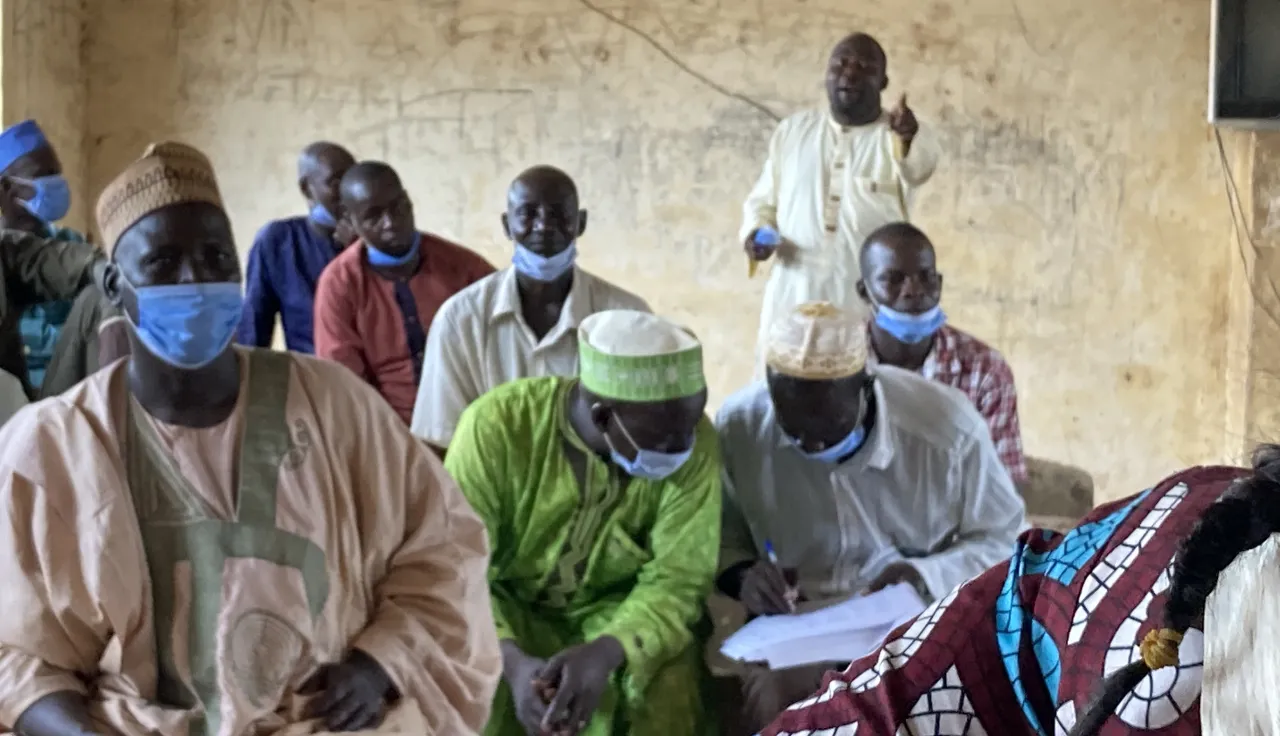
In Nigeria there are at least 800 women dying in every 100,000 live births. The situation is worse in the conflict-affected North East region where, according to the World Health Organization, over 1,500 women die per every 100,000 live birth. Sexual and Reproductive health is a major aspect of health care services, which with proper attention, can lead to reduction in maternal and neonatal mortality rates.
In remote communities in the North East region of the country, where access to health care is limited due to the ongoing conflict, certain practices like self-medicating and delaying going to a health facility could potentially put mother and child at the risk, but having men play their roles as supportive partners in reproductive health can make a major difference. This however, can only happen if these men have the right knowledge and attitude on reproductive health matters.
We have been organizing training sessions to ensure that men are equipped with this information. Some of the aspects covered in these sessions include; importance of maternal and child health-related services such as antenatal and post-natal care as well as addressing misconceptions about maternal and child health services. This year we have hosted several sessions of "male involvement in reproductive health" training in Adamawa State and over 500 men participated.
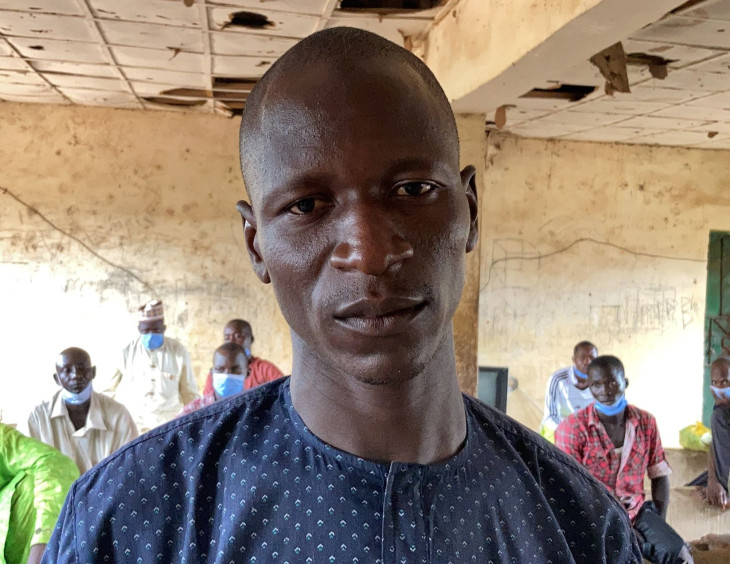
"My knowledge on pregnancy related issues has increased a lot and I will ensure that I support my wife in dealing with some harmful practices that may harm her and our child," noted Suleiman Sani after a training. (c) Mike Okaba/ICRC
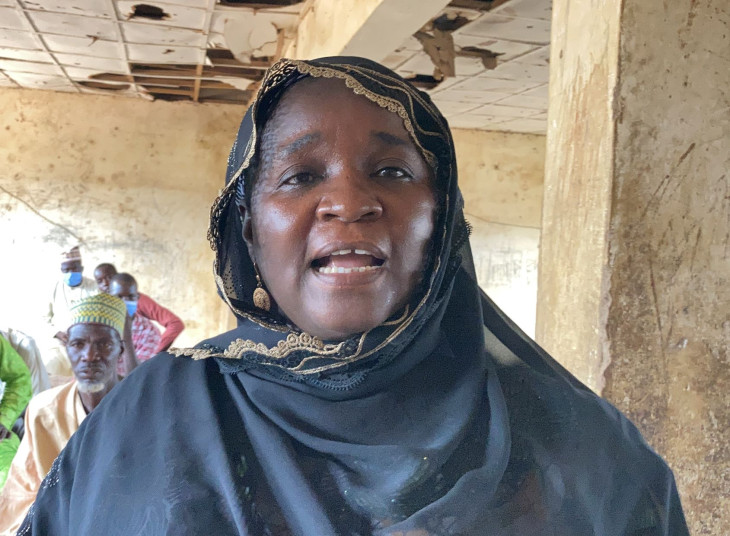
"I am sure those who attended this training have learnt a lot about reproductive health. And with the knowledge gathered, we hope to see more turnout for antenatal and post-natal sessions in the Primary Health Centres which can go a long way in reducing maternal and neonatal deaths," said Fatimatu Aminu, Director of Mother and Child Health, at Maiha local government. (c) Sodiq Alabi/ICRC
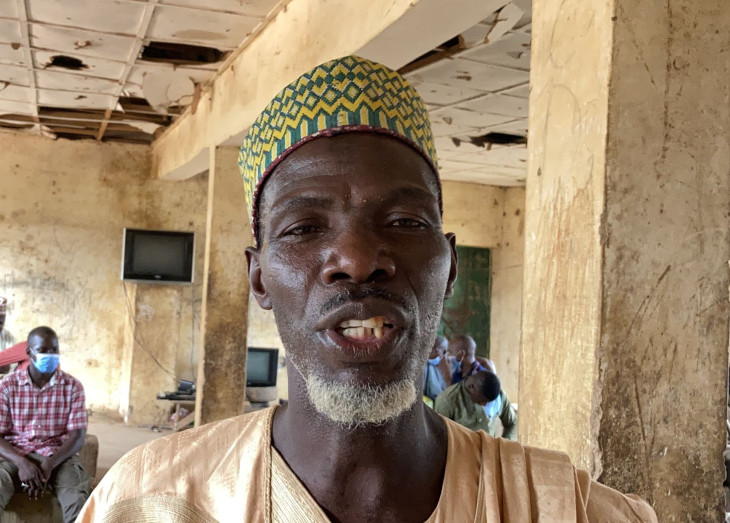
"Everything we have been taught today is useful. Especially lessons on sexually transmitted diseases and pregnancy related complications. We will no longer hesitate to seek medical help rather than wasting time at home hoping our wives get better with traditional solutions," noted Jaura Mohammadu a community leader in Wurolade after attending one of the sessions. (c) Mike Okaba/ICRC

